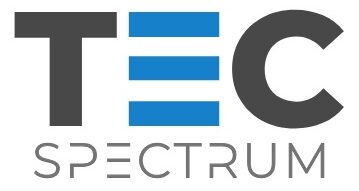Islamabad, Pakistan’s serene and planned capital, is taking bold steps toward becoming a smart city. In a recent high-level meeting at the Capital Development Authority (CDA) headquarters, officials unveiled plans to implement mandatory M-Tags for vehicles and a cutting-edge digital parking system. These initiatives aim to modernize urban management, reduce traffic congestion, and promote a cashless, tech-driven ecosystem. This blog post dives into the details of these transformative changes, their benefits, and what residents and visitors can expect as Islamabad embraces a smarter future.
Why Smart Cities Matter
Smart cities leverage technology to improve efficiency, sustainability, and quality of life. By integrating tools like M-Tags, digital payment systems, and smart infrastructure, cities can address challenges such as traffic congestion, illegal parking, and inefficient urban services. Islamabad’s latest initiatives align with global trends, positioning the capital as a leader in Pakistan’s urban innovation landscape.
Mandatory M-Tags: A Game-Changer for Islamabad
What Are M-Tags?
M-Tags are electronic identification tags attached to vehicles, enabling seamless tracking and access control. Similar to RFID (Radio Frequency Identification) technology, M-Tags allow authorities to monitor vehicle movement, enhance security, and streamline toll collection or entry processes. In Islamabad, M-Tags will soon be mandatory for all vehicles entering the city.
How M-Tags Work
- Electronic Identification: Each M-Tag is linked to a vehicle’s registration, allowing real-time tracking.
- Entry Control: Vehicles without M-Tags will be denied entry into Islamabad, ensuring compliance.
- Integration with Digital Systems: M-Tags will sync with the city’s digital infrastructure, including toll booths and parking systems.
Benefits of Mandatory M-Tags
- Enhanced Security: M-Tags enable law enforcement to track vehicles, reducing the risk of unauthorized or suspicious activities.
- Traffic Management: Daily vehicle inflow and outflow surveys, as directed by CDA Chairman Randhawa, will help optimize traffic flow.
- Cashless Transactions: M-Tags support digital payments, aligning with Islamabad’s cashless vision.
Digital Parking System: Smarter, Faster, Cashless
What Is the Digital Parking System?
Islamabad’s digital parking system is a tech-driven solution to replace traditional parking methods. Instead of cash-based or manual ticketing, residents and visitors can book and pay for parking spots using mobile apps or QR codes. The system will first roll out in commercial and high-traffic areas, with plans for citywide implementation.
Key Features of the Digital Parking System
- Smart Parking Meters: These devices will charge variable rates based on location congestion—busier areas will have higher fees.
- Mobile App Integration: Users can reserve parking spots in advance via a dedicated app or online platform.
- Cashless Payments: Payments can be made through mobile apps, bank cards, or QR code scans, eliminating the need for cash.
- Real-Time Availability: The system provides real-time updates on available parking spaces, reducing the hassle of searching for a spot.
How It Benefits Residents and Visitors
- Reduced Congestion: By guiding drivers to available spots, the system minimizes circling and traffic buildup.
- Elimination of Illegal Parking: Digital monitoring ensures compliance with parking regulations.
- Time Savings: Pre-booking parking spots saves time, especially in busy commercial hubs like F-7 or Blue Area.
- Eco-Friendly: Reduced idling and circling contribute to lower emissions, supporting Islamabad’s sustainability goals.
CDA’s Broader Digital Transformation
One Window Facilitation Center Goes Digital
The CDA’s One Window Facilitation Center is also undergoing a digital overhaul. Soon, residents will be able to pay for services such as parking fees, utility bills, and property dues through mobile apps, bank cards, or QR codes. This shift eliminates the need for cash transactions and long queues, making civic services more accessible and efficient.
Electric Vehicle Charging Stations
As part of its smart city vision, Islamabad is exploring the integration of electric vehicle (EV) charging stations in key areas. This move aligns with global trends toward sustainable transportation and positions the city as a forward-thinking urban hub.
Impact on Urban Mobility and Security
Streamlining Urban Mobility
The combination of M-Tags and the digital parking system is expected to revolutionize urban mobility in Islamabad. By reducing illegal parking, optimizing traffic flow, and offering cashless payment options, these initiatives will make navigating the city more seamless for residents and visitors alike.
Enhancing Security
The mandatory M-Tag system will significantly improve the city’s security framework. By tracking vehicle movements, authorities can:
- Identify and monitor suspicious vehicles.
- Respond quickly to traffic violations or emergencies.
- Enhance surveillance in high-traffic areas.
Chairman Randhawa emphasized, “We are committed to making Islamabad a safer and smarter city. These steps will streamline urban mobility and enhance surveillance capabilities for law enforcement.”
Implementation and Public Awareness
Phased Rollout
The CDA has planned a phased implementation to ensure a smooth transition to these new systems. The digital parking system will first target high-traffic commercial areas before expanding citywide. Similarly, M-Tag enforcement will begin with awareness campaigns to educate citizens about the technology and its benefits.
Public Awareness Campaigns
To ease the transition, the CDA will launch campaigns to:
- Educate residents about M-Tag registration and usage.
- Promote the digital parking app and cashless payment options.
- Provide tutorials on using QR codes and mobile apps for civic services.
These efforts will help residents adapt to the new systems without disruption, ensuring widespread adoption.
Challenges and Considerations
Potential Challenges
While these initiatives are promising, they may face challenges such as:
- Technology Adoption: Some residents may struggle with digital tools due to limited tech literacy.
- Infrastructure Costs: Installing smart parking meters and EV charging stations requires significant investment.
- Public Resistance: Mandatory M-Tags may face pushback from drivers accustomed to traditional systems.
Addressing the Challenges
The CDA is taking proactive steps to address these concerns:
- User-Friendly Apps: The digital parking app will feature an intuitive interface to accommodate all users.
- Affordable M-Tags: Efforts are underway to make M-Tag registration accessible and affordable.
- Support Centers: The CDA’s One Window Facilitation Center will offer assistance for residents navigating the new systems.
Why Islamabad’s Smart City Initiatives Matter
Islamabad’s push toward a cashless, smarter city is more than just a technological upgrade—it’s a step toward sustainable urban living. By embracing M-Tags, digital parking systems, and cashless payments, the city is addressing critical urban challenges while enhancing the quality of life for its residents. These initiatives also set a precedent for other Pakistani cities to follow, positioning Islamabad as a model for smart urban development.
Global Context
Globally, cities like Singapore, Dubai, and Copenhagen have successfully implemented smart city technologies to improve urban mobility and sustainability. Islamabad’s efforts align with these global benchmarks, showcasing Pakistan’s commitment to innovation and progress.
How to Prepare for Islamabad’s Smart City Transition
For Residents
- Register for M-Tags: Visit the CDA’s One Window Facilitation Center or online portal to get your vehicle’s M-Tag.
- Download the Parking App: Stay updated on the release of the official digital parking app for seamless parking reservations.
- Go Cashless: Familiarize yourself with mobile payment apps or QR code scanning for parking and civic services.
For Visitors
- Plan Ahead: Ensure your vehicle has an M-Tag before entering Islamabad to avoid entry restrictions.
- Check Parking Availability: Use the digital parking system to pre-book spots in busy areas.
- Stay Informed: Follow CDA announcements for updates on implementation timelines and awareness campaigns.
Conclusion
Islamabad’s transition to a smart city with mandatory M-Tags and a digital parking system marks a significant milestone in Pakistan’s urban development. These initiatives promise to reduce congestion, enhance security, and create a more efficient, cashless urban ecosystem. As the CDA rolls out these technologies, residents and visitors alike can look forward to a smarter, safer, and more sustainable Islamabad.
CTA: Enjoyed this guide to Islamabad’s smart city revolution? Subscribe to our newsletter for more tech and urban innovation updates, or check out our article on Pakistan’s Emerging Smart Cities for a broader perspective! Share your thoughts in the comments below or spread the word on social media.











